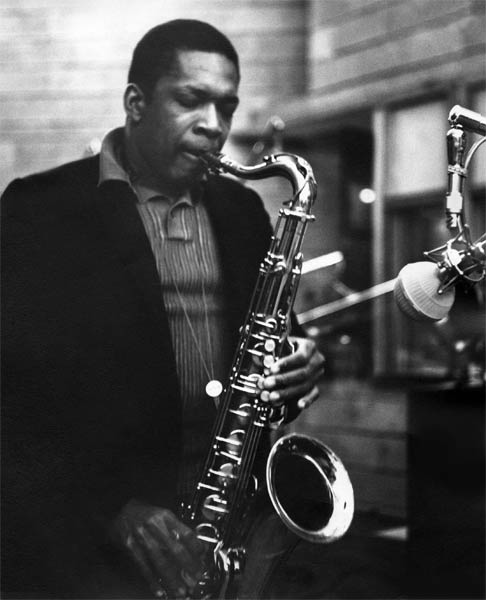
The sessions that make up this album show a fascinating glimpse into the evolution of saxophonist and composer John Coltrane's music. Four of the six tracks are with the well known “classic quartet" of McCoy Tyner on piano, Jimmy Garrison on bass and Elvin Jones on drums. The other two performances on this album, from a session recorded a few months later, show the quartet augmented by a number of extra musicians. The album begins with one of the augmented performances, the title track “Kulu se Mama," which is a lengthy spiritual excursion with a vocalist chanting and singing, Pharoah Sanders joining on tenor saxophone along with an extra bassist and drummer. Everyone plays “little instruments" like bells and hand percussion as well. It all adds up to a strange, but compelling performance, perhaps the gentler flipside to the overwhelming “Om" that would be recorded around the same time. The other track with extra musicians is “Selflessness" morphing into a full-throttle Pharoah Sanders blowout. Sanders wasn't fully developed as a saxophonist at this time, but his energy and commitment to the music are inestimable. MyCoy Tyner has a spot to shine in the middle, like the eye of a hurricane, pulling the music back from the brink with the help of strong bass and drums. There is an interesting section for piano and hand percussion as well that has an unusual sound, yet works quite well. The saxophonists renter and head for the cosmos with a torrid free-jazz climax. From the session featuring the quartet, comes an amazing duo performance with Coltrane and Jones collaborating on the awe-inspiring “Vigil." The music burns with an extraordinary white hot flame, recalling the epic beauty of the track “Chasin' the Trane" from the Village Vanguard Recordings of 1961. The full band plays on “Welcome," the polar opposite of “Vigil" as it is a haunting ballad with patient saxophone and lush piano accompaniment. Finally, the album closes with two takes of “"Dusk Dawn" which follow a similar format, with the focus on extended solos from Tyner and Garrison, and strong saxophone and drums joining them for compeling final statements. The evolution of John Coltrane's musical vision from the modality of the “classic quartet," to the ecstatic spirituality of his final free jazz period is the focus of this split disc, and it makes for fascinating listening. Kulu Se Mama—amazon.com


























